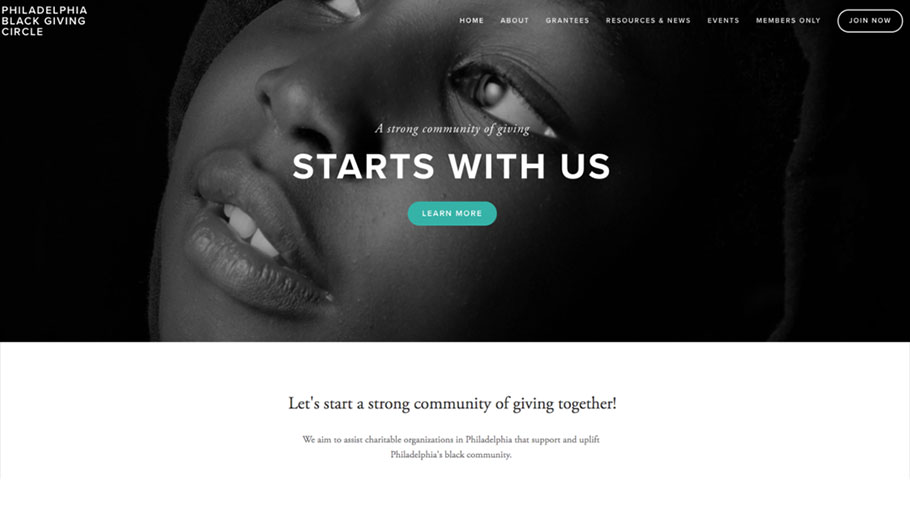Alyssa Ochs, Inside Philanthropy —
According to a report out last month, giving circles are becoming more diverse in terms of race, gender and income levels, and more popular among people of color. That finding tracks with our own coverage of giving circles across the U.S., where we’ve noticed that groups that have felt marginalized by mainstream philanthropy—like Asian Americans—are banding together to mobilize resources on their own.
What’s happening in Philadelphia is a case in point. A couple years ago, the Philadelphia African American Leadership Forum organized a study black-led nonprofits tend to be smaller, have less access to funding sources, and have fewer cash reserves to support their missions than white-led nonprofits. However, these black-led nonprofits are also more likely to track their data and have more diverse boards, which are both characteristics that funders of all kinds strive for these days.
This shortfall in support—or what one critic has described as “a clear philanthropic redlining of African-American communities”—isn’t confined to Philadelphia. It’s a larger problem that we’ve discussed in the past. As Nat Chioke Williams, the executive director of the Hill-Snowdon Foundation, told us last year, “It has often been easier or more allowable for philanthropy to support white-led organizations working in black communities than black-led organizations.” That tendency in philanthropy, Williams said, reflects “a natural trend in the cultural history in the United States to push black people off to the margins.”
But things are changing, including the rise of more wealth in the hands of African American professionals and growing efforts to organize donors of color.
Earlier this year, local civic leaders and philanthropy professionals launched the Philadelphia Black Giving Circle to distribute pooled funds to black-led, black-serving nonprofits in the Philadelphia area. Sidney Hargro, executive director of Philanthropy Network Greater Philadelphia, said, “Historically, the black community has always valued the giving of money, goods, and time to support worthy causes, though the term ‘philanthropy’ was not necessarily used to describe these efforts. The Philadelphia Black Giving Circle will be a formal catalyst that builds on this rich tradition to create and scale social change in our region.”
Fast-forward several months, and now the Philadelphia Black Giving Circle (PBGC) has accepted applications for its very first round of grantmaking. As of last month, the group had raised $30,000 and had about 50 members. Its initial goals were to collect $20,000 and gain 100 members, so this just goes to show the generosity of this community and its potential for future growth.
Leading the way in this unique, brand-new giving circle are prominent local leaders, including Food Trust Director of External Affairs Dwayne Wharton, Friends of the Rail Park Executive Director Kevin Dow, and Philanthropy Network Greater Philadelphia Director of Learning and Knowledge Management Theresa Jackson.
PBGC is kicking off its inaugural grantmaking endeavor with a round of general operating support grants for Philadelphia-based nonprofits that are at least two years old and have budgets under $1 million. The grants will be up to $5,000 each and vary in size. Any donors who have given at least $250 to PBGC can vote for the new grant recipients.
“We understand that there are many smaller organizations doing great community-based work, but because they are smaller in size and oftentimes have less resources, they get overlooked,” said Dwayne Wharton, a PBGC committee member. “We really want to connect with and support these organizations.”
While this is clearly a very black-focused effort, PBGC encourages people of all backgrounds and ethnicities to support its effort for the overall greater good of Philadelphia. We expect to learn about the first round of PBGC grant recipients in February 2019.















